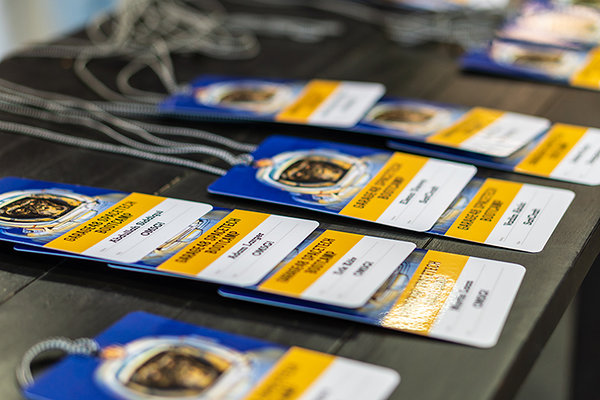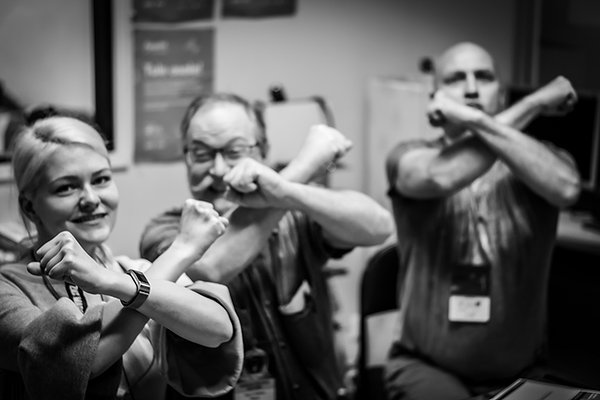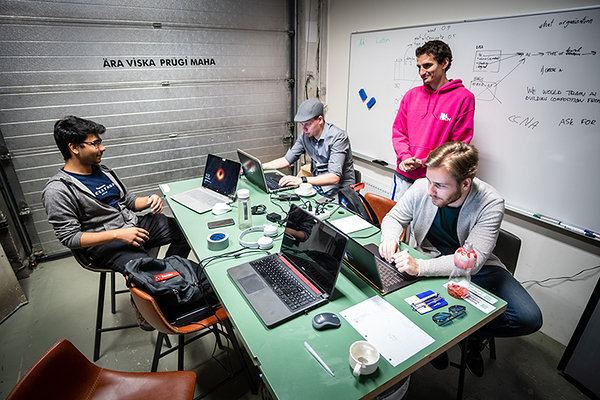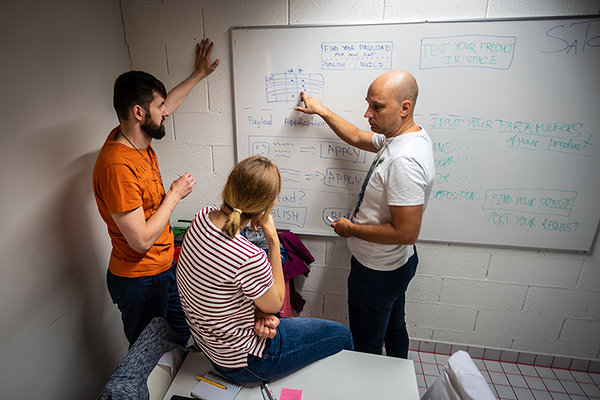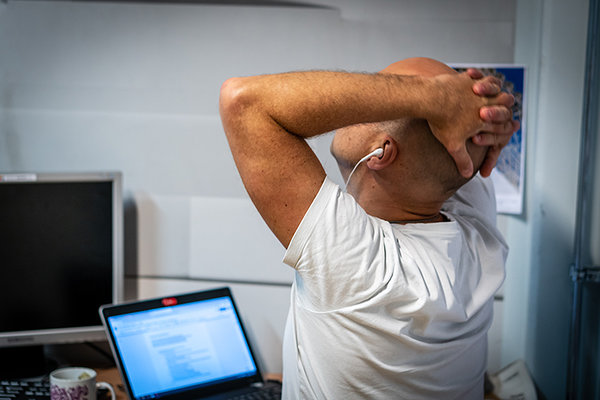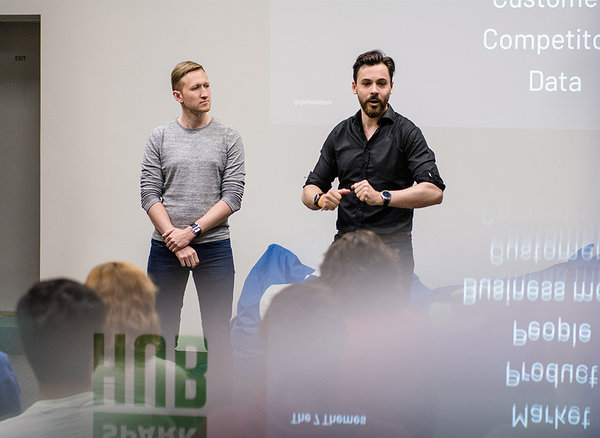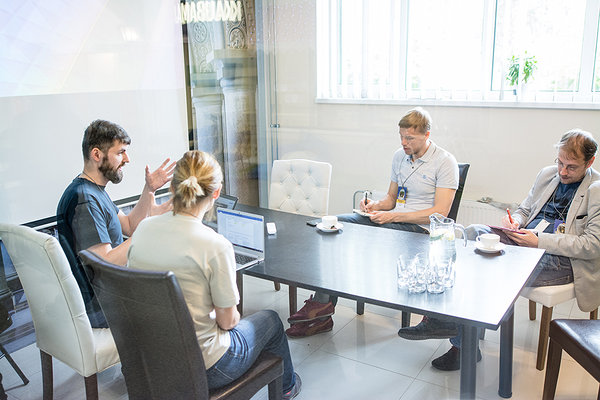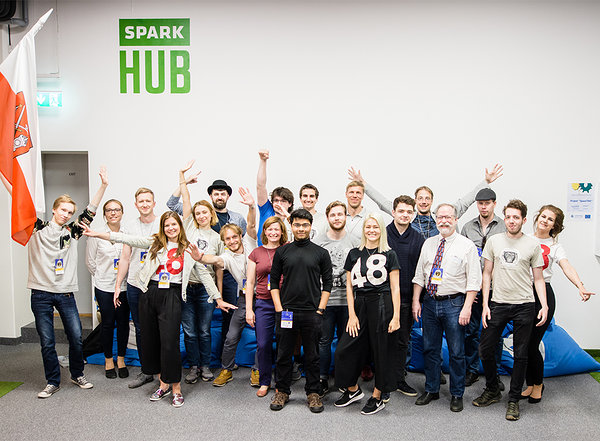From 29th May to 2nd June, Garage48 SpaceTech Bootcamp took place for the first time. For five days, five space teams gathered to SPARK HUB to validate their ideas, develop business models, find their first customers, get ready to pitch to investors and launch their businesses.
Garage48 SpaceTech Bootcamp was a follow-up event of Garage48 SpaceTech 2019: the fourth Garage48 spacetech hackathon that took place at the beginning of May. Out of ten teams formed in the hackathon, five best teams with the biggest business potential were selected to the bootcamp:
Cuby, a program that makes space science easy, interesting and fun;
OM5G, powerful data maps for telecom companies so that telecom can understand how the environment affects their services;
Peatlog, a solution that lets the governments to monitor the mining activities;
SatCraft, a platform that connects companies who want to test their products in space with satellite providers;
Stargazing, an app that helps to find the best stargazing locations in urban areas.
For five days, those five teams were learning about product-market fit, customer validation, prototyping, marketing, business models, funding, pitching and the legal side of entrepreneurship. Days were filled with intensive teamwork, customer calls, mentoring rounds and hands-on lectures.
The goal of the bootcamp was to validate the business idea with real customers, finish the MVP (minimum viable product) and get ready to pitch for investors. How did it go?
The bootcamp started out on Wednesday, 29th May with learning how to create a value proposition, understand the product-market fit and fill in the business model canvas. Several teams pointed out that finding a product-market fit was the most important thing they learned at the bootcamp.
“For us, every piece of information received was valuable,” said Vadim Akula, team lead of SatCraft. “For us, the most crucial part was customer validation – it’s a tool that has given us an enormous amount of information. We learned that customer validation needs to be done as early as possible.”
Abdullah Siddiqui, team lead of OM5G added that the customer validation is crucial because it determines how and to whom to market the product and how to design the business model. “It is really the core of product development and marketing. It’s one of the most obvious yet neglected stages of idea development.”
“As we were working on a B2B solution, we spoke with industry professionals to get direct feedback and validation about their needs. That really helped us to understand what we need to focus on,” he added.
Olga Kuvatova, team lead of PeatLog claimed that although they really enjoyed brainstorming on the business part with the team, the feedback from the customers helped them to readjust the solution to where there is a real demand for.
“Our plan is to develop the idea into a business, engaging our customers from the very beginning to ensure the best fit of our product,” she promises. “However, the most valuable part of the bootcamp was getting out from the routine and training a "team muscle" in quite extreme conditions. So we are going to keep moving.”
As the bootcamp was focused on customer validation and idea development, several teams pivoted over the course and some of them ended up with completely different ideas.
“Our idea was constantly evolving during the bootcamp. We did a pivot after talking to several SMEs during the customer validation on the second day. We were constantly adjusting both our product and business strategy as we received information from potential customers,” recalled Vadim, the team lead of SatCraft.
The fourth day was all about pitching and storytelling together with Gleb Maltsev, one of the top pitch trainers in Estonia.
Several teams said that storytelling was a crucial skill to learn. “The pitch workshop gave us invaluable skills which we can apply not only when presenting our idea, but also when performing public speaking in general,” said Andres Soop, team leader of Stargazing.
On the last day, all the teams had one-on-one meetings with investors Vaido Mikheim, representative of ESA BIC Estonia and Gerri Kodres, Founding Partner at United Angels VC. According to Mikheim, the quality of teams was surprisingly high and at least two teams out of five could apply for ESA BIC Estonia.
“We’re glad that Garage48 SpaceTech hackathon has gone through some evolution and is now followed by the bootcamp, helping teams make it to the “real” entrepreneurship,” he said. “Building a successful space company is a marathon. Programs like that are small winning posts that help to conquer the long distance without quitting.”
According to the board member of Garage48 and the initiator of spacetech hackathons Kai Isand, creating a spacetech bootcamp is a significant step for the local space economy.
“Garage48 SpaceTech hackathon, bootcamp and ESA BIC Estonia incubator form a beautiful pipeline: at the hackathon, ideas turned into prototypes. At the bootcamp, the ideas are validated and business models are developed further. After the bootcamp, teams should be ready to apply for ESA BIC Estonia or any other business incubator and launch their business at an international scale,” she explained.
Last but not least – big thank you and wooo! to the five teams who bravely survived five long days at the bootcamp: Cuby, OM5G, Peatlog, SatCraft and Stargazing.
And of course, teams couldn’t have done it without our amazing mentors: Kai Isand, Pauls Irbins, John C. Sullivan, Aleksander Tõnnisson, Priit Salumaa, Gleb Maltsev, Pätris Halapuu, Toomas Välja, Triin Kask, Martin Vares, Jaana Metsamaa, Sven Lilla, Nikita Lumijõe, Vaido Mikheim and Gerri Kodres.
Also, thanks to our wonderful photographers Toomas Välja and Taavi Muide.
See you at the fifth Garage48 SpaceTech bootcamp in the autumn!
The event was financed by European Regional Development Fund, sTARTUp HUB, Heliocentric Technologies Latvia and Ventspils University College.
